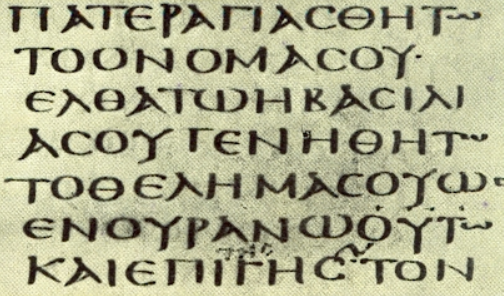I got a question from a student today asking about capitalizing pronouns for God. Here is her email:
Many times when I am writing, when it refers to God, Jesus, and Holy Spirit, I will capitalize He, His, Himself, etc (for me it is a preference) However when writing academically what is appropriate for such references? Do I capitalize He, His, Himself, etc?
Here is my response.
Great question.
Up until about thirty years ago the convention for divine pronouns was to capitalize them, which is why many people do this today. Many older English translations did that. In my experience most worship songs have pronouns for God capitalized. Here is the NAS of Genesis 2:2 (the NAS first came out in 1960).
“And by the seventh day God completed His work which He had done; and He rested on the seventh day from all His work which He had done” (Gen 2:2 NAS).
But I’m not aware of an English Bible translation in the past 30 years that has followed this convention. All of them leave divine pronouns uncapitalized, except at the beginning of a sentence. Check out: NIV, ESV, NRSV, etc. Here is the NIV (2011).
“Then God blessed the seventh day and made it holy, because on it he rested from all the work of creating that he had done” (Gen 2:2 NIV).
All of these newer translations don’t capitalize divine pronouns. Sometime the text is unclear about the antecedents for these pronouns, so when older translations capitalize a pronoun they think is referring to God, they are adding a level of interpretation, which is going beyond the text, and can be misleading. If the original language of Scripture is ambiguous, I’m OK with an English language translation being ambiguous.
While I think I understand the rationale (capitalizing these pronouns is a way of honoring God), here are three reasons why I no longer do so.
1) Neither the Hebrew or Greek capitalize divine pronouns, so any capitalization we add to our writing goes beyond the text of Scripture. (See image of a Greek manuscript (Codex Sinaiticus) of Luke 11:2 from Wikipedia).
2) Recent translations don’t do it anymore. Most Christian authors and publishers do not capitalize divine pronouns either.
3) I don’t think God cares. He cares about justice, obedience, peace, grace, love, but not capitalization.
I tell students they don’t need to capitalize divine pronouns (but I don’t take off for it).
Thanks. – Dave Lamb

